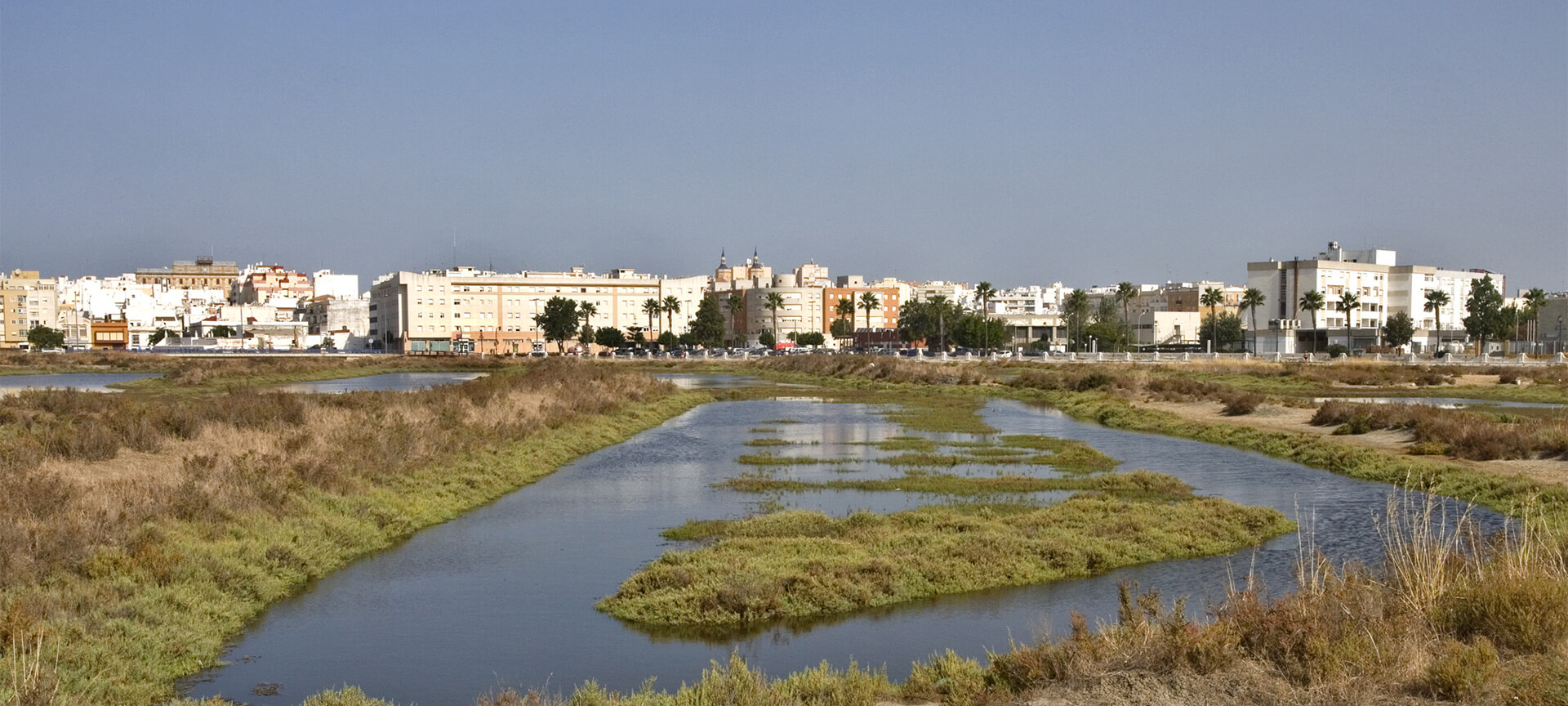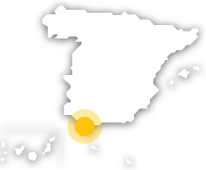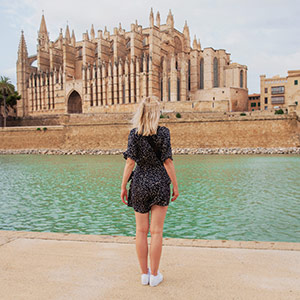
Bay of Cádiz Natural Park

A melting pot of ecosystems
The park is home to diverse ecosystems, including beaches, dunes, lagoons, marshes and estuaries, inviting visitors to enjoy both its landscape and its valuable birdlife and vegetation.
The bay stretches for about five kilometres, between Punta de San Felipe and the Santa Catalina Castle, in Puerto de Santa María. The complex presents areas with very distinct environmental characteristics and this conglomeration of habitats is one of the reasons for its ecological value. Levante beach and the coastal and dune area that extends between Cortadura and Barrosa beaches, as well as the marshes of Sancti Petri, Trocadero and Los Toruños, are the most interesting land areas.The salt marsh area, which once covered more than 5,000 hectares, is another highly valuable area and its exploitation dates back to the time of the Phoenicians. Stone pine groves can be seen around the bay. Reeds, bulrushes, and sedges grow in the less saline aquatic zone. The vegetation of the marshes is also very rich and varied. The nature reserve is home to the Natural Sites of Trocadero Island (525 hectares) and the Sancti Petri Marshes (156.4 hectares).
Debe activar Javascript para poder utilizar este servicio
Bay of Cádiz Natural Park
Natural Park Visitor Centre
C/ Buen Pastor, 507 (carretera de Campo Soto, junto al acceso a la playa)
11100 San Fernando, Cadiz (Andalusia)
Cadiz (Andalusia):
Activa JS
What you need to know
-
Cultural information
The reserve's surroundings are enormously rich in terms of its cultural, artistic and monument treasures. Towns such as El Puerto de Santa María, San Fernando, Puerto Real, Chiclana de la Frontera and Cádiz are worth a visit in and of themselves.
-
Environmental information
The most significant ecological value of this natural park is the combination of different ecosystems it encompasses. Thus, we discovered various areas of marshes and estuaries, a coastline of beaches, the dune development zone and Trocadero Island. Among the birdlife present in the Bay, the most notable are flamingos, spoonbills and the important breeding colonies of common terns, Kentish plovers, avocets and black-winged stilts. The marshes and estuaries are very rich in mollusks and fish. In coastal pine forests the presence of the chameleon is important. Its plant wealth is enormous, including species from sandy areas such as the threatened Verbascum pseudocreticum, the Cynomorium coccineum or the Halopeplis amplexicaulis.
-
Information for visits
The A-4 and AP-4 roads connect the park's various sectors and coastal towns. In San Fernando there is the Visitor Centre, as well as a Botanical Garden dedicated to native flora.
Travel plans for inspiring you


